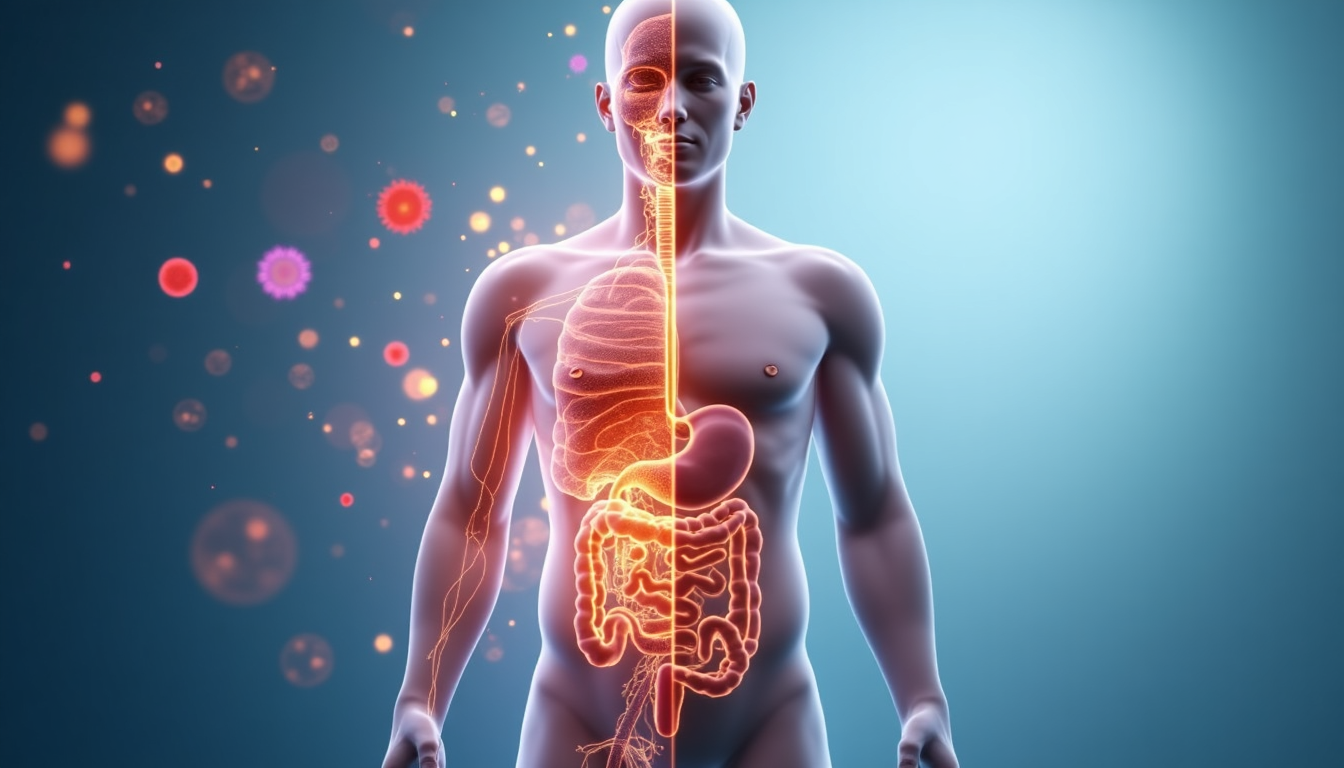
Hormone Imbalances and Sleep: Why Cortisol and Progesterone Matter
Hormone imbalance and sleep is often an overlooked relationship when considering sleep problems. Difficulty falling asleep, waking in the night, or feeling unrefreshed in the

What is a Parasite?
Parasites are organisms that depend on a host—often humans—to survive. While some live harmlessly within us, others can cause significant health problems. If you’re dealing with symptoms like diarrhea, abdominal pain, or bloating, which are common with IBS (Irritable Bowel Syndrome), parasites could be one of the underlying causes.
Here’s everything you need to know about parasite testing and how it might help you understand your gut health.
Can You Test for Parasites at Home?
Yes, you can. At-home stool tests are now widely available and easy to use. Many of your stool tests screen for parasites;
GI Effects Pathogen Profile
A simple top do at home test that only checks for gut pathogens – parasites, bad bacteria, worms and yeasts.
GI Map
GI Effects Comprehensive stool test
Our 2 most popular stool test that check for pathogens like parasites, yeasts and bacteria but also check for good bacteria and check digestive function and have markers for leaky gut too.
These stool tests offer an accessible way to check for parasites and gain insights into your digestive health without visiting a clinic.
What Are the Symptoms of a Parasitic Infection?
Different parasites cause different symptoms, and the severity can vary from person to person. However, there are some common signs to look out for, including:
• Persistent diarrhea
• Skin irritations like rashes or bumps
• Sudden weight loss or an increased appetite
• Nausea or abdominal pain
• Difficulty sleeping
• Fatigue or weakness
• Anemia
• Muscle or joint pain
• Allergic reactions
These symptoms can overlap with many other conditions, which is why accurate testing is essential to determine the cause.
Are Parasites Behind Your IBS Symptoms?
It’s possible. Parasites are known to cause digestive symptoms that resemble IBS, such as bloating, gas, diarrhea, and constipation. However, IBS symptoms can also arise from other factors, such as:
1. Small Intestinal Bacterial Overgrowth (SIBO): This occurs when bacteria in the small intestine grow excessively, disrupting digestion. Studies suggest that SIBO may be present in up to 85% of IBS cases.
2. Food Intolerances: Often related to imbalances in gut bacteria, food intolerances can cause symptoms like bloating, cramps, and diarrhea.
3. Dysbiosis: An imbalance in gut microbes can lead to poor digestion and inflammation, both of which are common in IBS.
4. Stress: Chronic stress alters gut function and can worsen IBS by disrupting the gut-brain connection.
Understanding these underlying causes is crucial. A comprehensive stool test can help identify whether parasites, bacterial imbalances, or other factors are contributing to your symptoms.
How Does the NHS Test for Parasites?
The NHS uses microscopy to identify parasites, worms, or their eggs in stool samples. While this method is effective for diagnosing severe infections, it has limitations. It often misses less obvious cases or fragments of parasites, leading to false negatives. The accuracy depends on the technician’s expertise and the quality of the sample, meaning subtle infections might go undetected.
Why Is PCR Testing Better?
PCR (polymerase chain reaction) testing is a cutting-edge method that detects the DNA of parasites, making it far more precise than traditional microscopy.
• How It Works: PCR can identify even tiny traces of parasite DNA, regardless of whether the sample contains a whole organism or just fragments.
• Why It’s Better: Research shows that PCR testing is highly accurate and effective, especially for hard-to-detect parasites like Giardia and Cryptosporidium.
We use advanced PCR technology in our testing, ensuring reliable results that can guide targeted treatment.
What Types of Parasites Affect Humans?
Parasites are divided into categories based on how harmful they are:
Harmless or Low-Impact Parasites:
• Blastocystis hominis
• Dientamoeba fragilis
Harmful Parasites (Pathogens):
• Giardia lamblia
• Entamoeba histolytica
• Cryptosporidium
Worms (Helminths):
• Tapeworms (Taenia species)
• Roundworms (Ascaris species, Pinworms)
• Hookworms (Ancylostoma and Necator americanus)
Key Insights
• Parasites are one of many potential causes of IBS-like symptoms.
• Diagnosing IBS often requires ruling out other conditions, including parasitic infections.
• NHS testing methods, while effective for major infections, may miss subtler signs.
• PCR stool testing offers a more advanced, reliable way to detect parasites and other gut health issues.
Taking a holistic approach to your symptoms, including testing for parasites, SIBO, and other gut imbalances, can help uncover the root cause and guide effective treatment. If you suspect parasites might be behind your symptoms, consider an at-home test to start your journey to better gut health.
GI Effects Pathogen Profile
A simple top do at home test that only checks for gut pathogens – parasites, bad bacteria, worms and yeasts.
GI Map
GI Effects Comprehensive stool test
Our 2 most popular stool test that check for pathogens like parasites, yeasts and bacteria but also check for good bacteria and check digestive function and have markers for leaky gut too.

Hormone imbalance and sleep is often an overlooked relationship when considering sleep problems. Difficulty falling asleep, waking in the night, or feeling unrefreshed in the

‘Detox’ has become one of the most misunderstood concepts in modern wellness. For many people, it brings to mind juice cleanses, restrictive diets or short-term resets promising quick results. Yet the body’s true detoxification systems are far more complex — and far more intelligent — than any cleanse.

Anxiety and gut health are closely linked through the gut–brain axis. Research suggests the gut microbiome, neurotransmitters and genetics may influence stress responses and emotional well-being. Exploring gut microbiome and nervous system insights can help build a more personalised understanding of anxiety.

Strange symptoms can puzzle anyone. Your body might show signs ranging from headaches and skin rashes to digestive problems and anxiety. Doctors sometimes struggle to explain these mysterious health issues that affect millions of people worldwide.
Please do not return samples to the laboratories that may arrive after Wednesday 27th March and up to and including Monday 2nd April.
The laboratories are closed from the 28th March – 2nd April for the Easter Holiday.